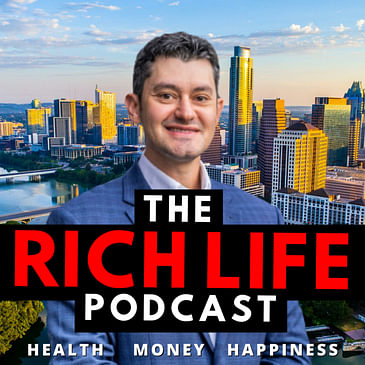Do you want to 3X your traffic to your business? Get more sales? Visit https://RedRatMedia.com to learn how to rank higher on Google, get more leads, and more sales! We are a Digital Marketing Agency & Ad Agency in Austin Texas that helps SMBs grow with SEO and PPC/Google Ads. P.s., Want to be an affiliate for us? 🚘 Win a Red Lamborghini, on me.. seriously. https://RedRatMedia.com/affiliate --- Support this podcast: https://podcasters.spotify.com/pod/show/the-rich-life/support 
